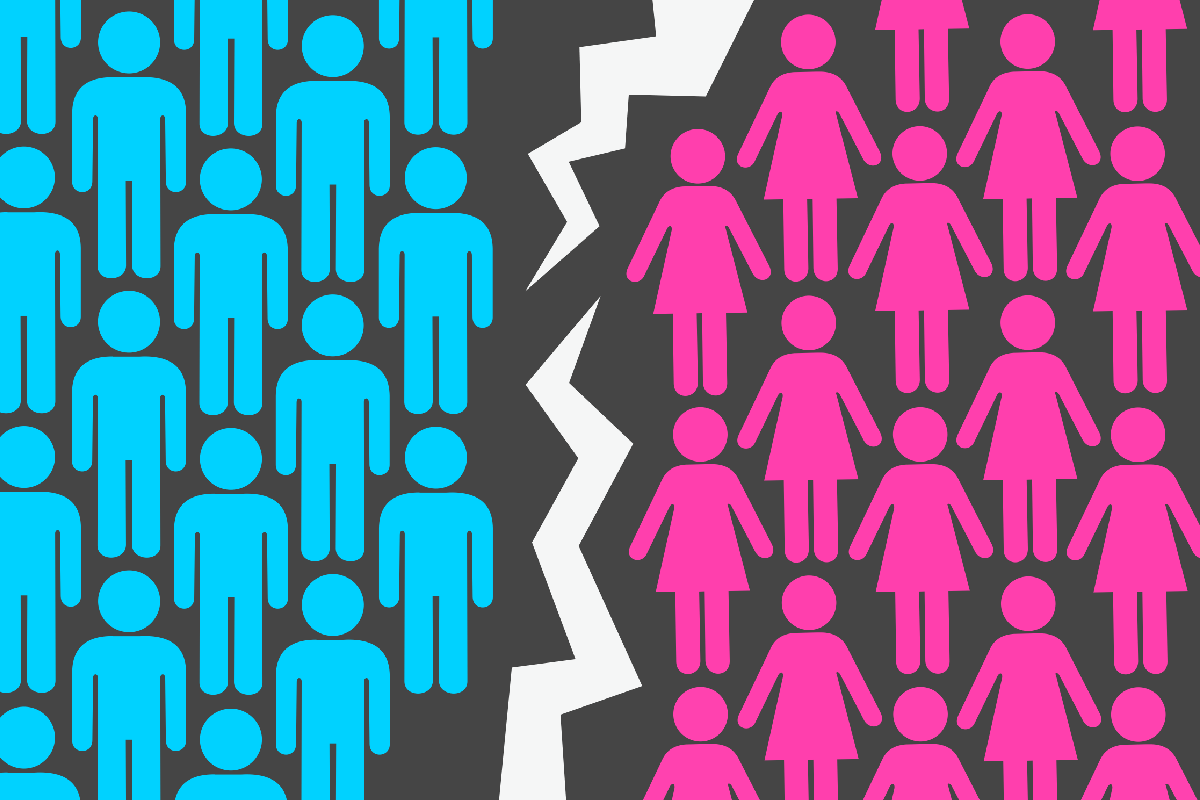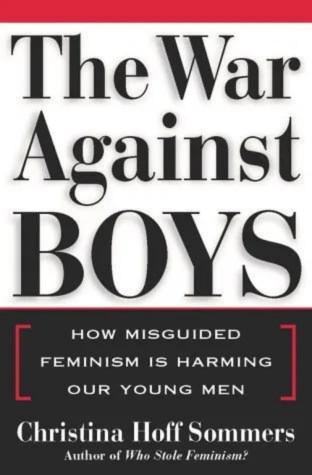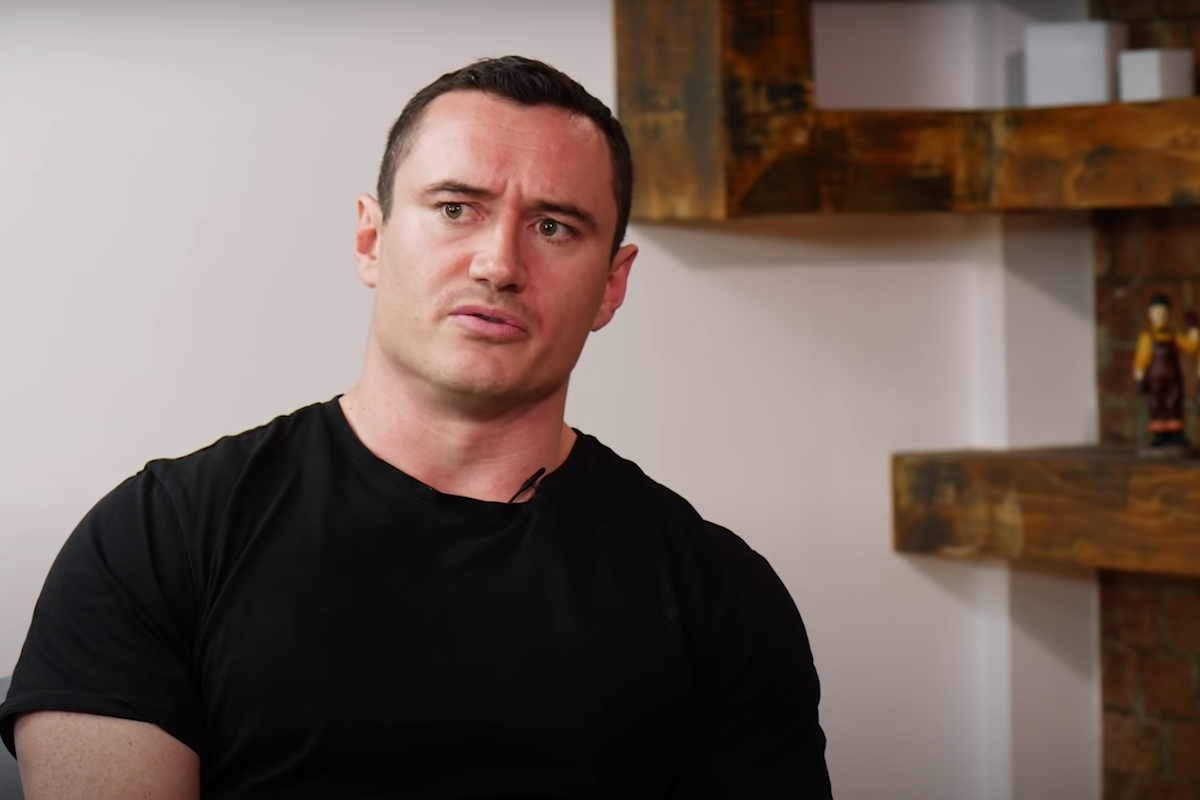Activism
The Gathering Resistance to the Stigmatisation of Masculinity
There is now a growing international movement of men and women dedicated to resisting the anti-masculinity narrative.

On the face of it, Brilliant Bob is an unremarkable character for a children’s book—a playful boy who loves football and embarks upon fun adventures with his friends Dazzling Dave, Genuine George, and Superboy Sam. But Bob and his three friends were created with the clear purpose of celebrating masculinity. They are brave, competitive, curious, persistent, risk-ready, strong, and stoical—traits that enlightened sections of society now frown upon and which educators tend to present to children as negative.
The perceived need for stories and role models that reaffirm traits and values like these is suggestive of how widespread and pernicious the attack on masculinity has become. A section of the books’ website entitled “Morals Conveyed” elaborates:
The Brilliant Bob books will teach young boys to appreciate positive morals and traits that will add greatly to their life journeys. Male role models—such as fathers and grandfathers, older brothers, or teachers—are encouraged to read these books to the young boys in their lives, reinforcing the positive impact these traits have had on their masculinity.
“I wrote the stories of Bob and his friends to promote masculine traits in boys,” author Ken Jolivet tells me. “More accurately, to address the lack of appreciation of manly values within contemporary culture—this is lowering our boys’ self-esteem, male identity, wellbeing, and pride. These stories are my response to a society that shames boys for being male. When the anti-men narrative became anti-male, I was compelled into action and decided to write the Brilliant Bob series, anti-male meant that boys were being negatively affected and I wanted to use uplifting stories with morals surrounding masculine traits to bring positivity to their lives.”
Jolivet is not alone. There is now a growing international movement of men and women dedicated to resisting the anti-masculinity narrative. YouTube channels and podcasts for men and boys such as Order Of Man and The Art Of Manliness boast massive followings and provide a formidable global support network, while prominent dissident academic figures like Camille Paglia have called for greater acceptance of masculinity within society. Male students are suing their universities for anti-male discrimination, while a growing number of men express their discontent about unfairness in the workplace as women are prioritised in the name of satisfying equality quotas.

Inevitably, parents have become prominent players in this effort. Stories have emerged of parents’ angry letters to schools and petitions. Some have resolved to remove their children from school altogether. Homeschooling is experiencing a steady rise, reaching a staggering 11 percent in the US, and concerned parents have begun to establish action groups such as Parents Defending Education and Bettina Arndt’s Mothers Of Sons initiative. Dedicated channels have been set up so that individuals can report incidents of boys being shamed at school. These clashes between parents and the educational establishment are no longer relegated to the fringe. When parents discover, for instance, that a school is making their sons face their female peers and apologise on behalf of their sex for crimes of which they are personally innocent, they are understandably angry and are finding ways to express their anger in various online and media fora. In this way, awareness of the systematic stigmatization of masculinity is growing.
This attack on masculinity is not new, but its impact is now facing renewed scrutiny as boys fall behind girls at school, young men drop out of university at an alarming rate, life expectancy for men falls, and suicide remains the number one killer of men under the age of 45. Statistics released yearly paint a grim picture of men’s hidden reality—the Men and Boys Coalition reports that 86 percent of rough sleepers in England are male, as are 95 percent of prisoners, and over two-thirds of murder victims.
“Worldwide, boys are 50 percent less likely than girls to meet basic proficiency in reading, math, and science,” write Warren Farrell and John Gray in The Boy Crisis. “…ADHD is on the rise and as boys become young men, their suicide rates go from equal to girls to six times that of young women … boys are growing up with less-involved fathers and are more likely to drop out of school, drink, do drugs, become delinquent and end up in prison.” Perhaps most devastating is the theory that boys are experiencing a “purpose void,” which leaves them “feeling alienated, withdrawn and addicted to immediate gratification.”

It is thanks to YouTube and the likes of Farrell and Gray, Jordan Peterson, and Christina Hoff Sommers, that this fraught issue has made its way into mainstream media reporting and commentary. Sommers’s landmark polemic The War Against Boys was first published over two decades ago, and the “backlash” against masculinity is at the heart of Jordan Peterson’s narrative which has found an audience among disillusioned young men, for whom the clinical psychologist became a fatherly figure. Peterson’s earnest concern is that the systematic degradation of masculinity is leading millions of young men to live lives without purpose or meaning. When the American Psychological Association issued controversial guidelines for treating male patients in 2018 that presented a number of common masculine traits as negative, Peterson called the document “an all-out assault on masculinity.” Beware the ideologues in psychologists’ clothing, he warned.
As awareness grows, people are connecting the dots between the war against boys Sommers identified back in 2000, and the boy crisis described by Farrell and Gray 18 years later. For parents of young sons, this is particularly personal as they are moved by the innate instinct to protect their children. Remote schooling during the pandemic has arguably played a significant role in raising awareness, as parents can now see what their children are exposed to during the school day. This privilege was denied to Eton parents, who were only alerted to that distinguished institution’s anti-masculine agenda after English teacher Will Knowland was sacked for drawing attention to the ideology promulgated there.
Knowland had created a 33-minute video entitled “The Patriarchy Paradox” in which he offered an alternative take on the prevailing view of relations between the sexes. A member of staff reported it as offensive and when Knowland refused to remove the video from his personal YouTube channel, he was dismissed and referred to the teaching regulation agency. It turned out that the school had been inviting Everyday Sexism author Laura Bates to give lectures and participate in conferences instructing pupils about feminism and sexism, and that masculinity workshops had been run by the Good Lad Initiative (since rebranded Beyond Equality), at which boys learned how to recognise signs of toxic masculinity and sexism. A journalist who attended the workshop later wrote, “I wondered whether parents were aware that their pubescent sons were being encouraged to see themselves through a prism of toxic masculinity and dysfunction.”
“My son says pre-pubescent boys are having the main pillar of their identity demolished,” wrote a distraught Etonian mother in an anguished essay for the Critic, “leaving them in a desert. And what do we—the parents and fee payers—know of all this? The answer is: only as little as the school is prepared to reveal.” Her son, she wrote, had come to feel that “Physical, Social and Health Education—rather than being a discursive course aimed at helping boys cope with the inevitable pressures and temptations of life as a young man—has become the vehicle for radical feminist ideology and transsexual encouragement, where opinions about gender theory are presented as fact. Indeed, it was in an attempt to restore balance to this situation that the teacher William Knowland created his now-infamous video.”
The row caused by Knowland’s firing may yet be a turning point in the backlash against anti-masculine ideology, as many parents and pupils realise that even a bastion of English resolve and proud tradition like Eton is vulnerable to transformation by political proselytisation. The anonymous author of the Critic essay demanded headmaster Simon Henderson’s resignation, and 800 Etonians wrote a letter protesting their English teacher’s dismissal. In the Telegraph, James Innes Smith described their letter as “an important milestone in the pushback against an increasingly vindictive woke ideology.” He concluded, “a generation of boys could be lost to an indoctrinated mindset that tells them there is something pathological about being male.”

Over the past few decades, the teaching profession has become increasingly gender-imbalanced—75.8 percent of teachers in the UK and 75 percent of teachers in the US are female. This in itself is not an issue—these positive traits, the problem is the imbalance between these and the traditionally male ones. The issue arises when normal male traits are disparaged. In schools, rough-and-tumble is discouraged in favour of nurturing and compassion—there is little room for the kind of boyish exploration and adventure celebrated in Ken Jolivet’s Brilliant Bob books. In today’s schools, wrote David French in the National Review, “we love the Earth, we don’t conquer it.” This general sentiment is shared by Christina Hoff Sommers, who argued in a short video for Prager University, that “being a normal boy is a serious liability in today’s classroom.” Little patience exists for the kind of male disorganisation and restlessness that just two decades ago would have been understood as a normal part of growing up. Quoting psychologist Michael Thompson, Sommers concludes, “girl behaviour is the gold standard in schools, boys are treated like defective girls.”
These issues are of particular importance within an all-boy environment, argues Knowland. “Many of [these institutions] are embarrassed to exist,” he adds, “and they need to think hard about why that is … People need to put boys in touch with the past and the traditions about what it means to be a man, rather than rubbishing them and leaving them with some of the main pillars of their identity, as one of the Eton boys put it, just crushed to dust.”
Courage, risk-taking, persistence, strength, and stoicism are normal characteristics of young male development. Instead of trying to re-engineer human nature, educators should acknowledge that such traits and proclivities are of value to all children, and that they are most important to the process by which young boys become men.
The author’s interview with Will Knowland can be found here.






